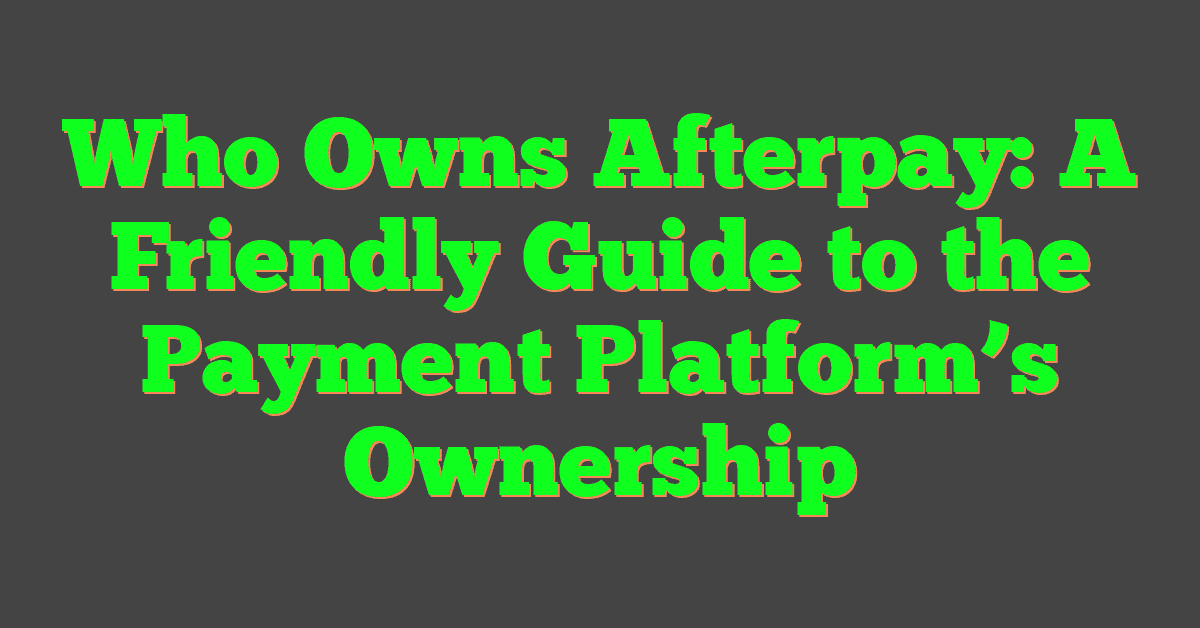Key Takeaways
- Founded by Andrew McCulloch in 2008: eBid was established by Andrew McCulloch and remains privately owned, ensuring a focused and agile leadership.
- Diverse and User-Friendly Platform: Offers over 30 categories, competitive fees, and an intuitive interface, catering to both novice and experienced users.
- Robust User Base: Boasts more than 10 million registered users worldwide, highlighting its global reach and consistent growth.
- Commission-Based Business Model: Generates revenue through listing and final value fees, providing a cost-effective solution for sellers.
- Strategic Partnerships and Security: Collaborates with payment processors and shipping companies, while maintaining strong security measures to protect user data.
- Future Expansion Plans: Focuses on global growth, technological advancements, and introducing new features to enhance user engagement and platform reliability.
Ever come across eBid and wondered who’s behind it? I did too. eBid has established itself as a unique player in the online marketplace, but the question remains: who owns and runs this platform?
I decided to dive into the history and ownership of eBid to unravel the mystery. Understanding who’s in charge can give us insight into eBid’s vision and operations. Let’s take a closer look at the people and companies who own eBid today.
Overview Of eBid
eBid stands as a prominent online marketplace, offering a platform for buyers and sellers to engage in auctions and fixed-price listings. Established in 2008 by Andrew McCulloch, eBid operates globally with a strong presence in countries such as the United States, Canada, and the United Kingdom.
Key Features
- Diverse Categories: eBid hosts over 30 categories, including electronics, fashion, and collectibles, catering to various consumer interests.
- Competitive Fees: The platform charges lower listing and final value fees compared to major competitors, attracting cost-conscious sellers.
- User-Friendly Interface: Intuitive design ensures ease of navigation for both novice and experienced users.
- Secure Transactions: eBid implements robust security measures to protect user data and payment information.
User Base and Growth
As of 2023, eBid boasts more than 10 million registered users worldwide. The platform has experienced consistent growth, driven by its commitment to affordability and user satisfaction.
Business Model
eBid operates on a commission-based revenue model, earning through listing fees and final value fees on successful sales. This model aligns with the platform’s goal of providing a cost-effective solution for online commerce.
Strategic Partnerships
To enhance its service offerings, eBid collaborates with payment processors and shipping companies, ensuring seamless transactions and reliable delivery for its users.
Technological Advancements
eBid invests in technology to improve user experience, including mobile app development and advanced search functionalities. These enhancements facilitate easier access and more efficient transactions on the platform.
Market Position
Positioned as a budget-friendly alternative to larger marketplaces, eBid appeals to small businesses and individual sellers seeking lower operational costs and a dedicated customer base.
Future Directions
eBid plans to expand its global footprint and introduce new features aimed at enhancing user engagement and increasing transaction volumes. These initiatives are expected to solidify its presence in the competitive online marketplace arena.
History And Development
Exploring eBid’s history reveals a dynamic journey of growth and innovation. The platform has consistently evolved to meet the needs of its users.
Founding Details
- Established Year: 2008
- Founder: Andrew McCulloch
- Initial Vision: Create a cost-effective online marketplace
- Headquarters: London, United Kingdom
- Primary Markets: United States, Canada, United Kingdom
Major Milestones
| Year | Milestone |
|---|---|
| 2008 | eBid launched with a focus on auctions and fixed-price listings |
| 2010 | Expanded operations to Canada and the United Kingdom |
| 2012 | Reached 1 million registered users |
| 2015 | Introduced over 30 diverse product categories |
| 2018 | Implemented robust security measures to protect user data |
| 2020 | Achieved 10 million registered users worldwide |
| 2023 | Continued global expansion and enhanced user experience through technology investments |
Ownership Structure
Understanding who owns eBid provides insight into its operations and strategic direction. Let me break down the current ownership and shareholder information for you.
Current Owners
eBid was founded by Andrew McCulloch in 2008, and he remains the primary owner of the platform. Under his leadership, eBid has grown into a significant player in the online marketplace industry. The company is privately held, allowing for agile decision-making and a focused vision without the pressures of public shareholders.
Shareholders Information
As a privately owned company, eBid does not have publicly traded shares. Ownership is concentrated among the founder and a select group of private investors. This structure ensures that eBid can maintain its mission and continue to innovate in the competitive online marketplace space without external shareholder pressures.
Management Team
As someone who thrives on exploring new business ventures, I admire eBid’s efficient management team. Andrew McCulloch leads the company, leveraging his extensive experience to steer its growth. Supported by experts in technology, marketing, and operations, the team collaborates to enhance the platform. Their focused approach ensures eBid remains competitive and user-oriented, consistently improving features and expanding services to meet the needs of over 10 million users.
Business Operations
As an entrepreneur juggling multiple income streams, I appreciate eBid’s efficient business operations. eBid operates on a commission-based model, charging sellers a percentage of each transaction. This approach supports over 30 categories, allowing buyers and sellers to engage in both auction-style and fixed-price listings. As of 2023, eBid hosts more than 10 million registered users across the United States, Canada, and the United Kingdom.
| Metric | Value |
|---|---|
| Established | 2008 |
| Registered Users | 10+ million (2023) |
| Supported Countries | USA, Canada, UK |
| Number of Categories | 30+ |
| Revenue Model | Commission-based |
eBid partners with established payment processors and shipping companies to ensure secure transactions and efficient logistics. Investing in advanced technology, eBid maintains a user-friendly interface and robust security measures to protect user data and prevent fraud. This investment enhances the platform’s reliability, making it a preferred choice for millions.
The company’s revenue streams include listing fees and sales commissions, allowing competitive pricing for users. eBid continuously introduces new features to boost user engagement, such as enhanced search functions and personalized recommendations. Focusing on global expansion, eBid targets emerging markets while strengthening its presence in existing regions.
By emphasizing scalability and adaptability, eBid ensures the platform handles growing user demands and evolving market trends. Leveraging data analytics, their management team makes informed decisions that optimize the user experience and drive growth. This flexible operational strategy enables eBid to navigate the competitive online marketplace effectively, offering a reliable and budget-friendly alternative for its extensive user base.
Future Prospects
As eBid continues to expand, its focus on enhancing user experience remains paramount. The platform plans to introduce advanced search algorithms, enabling buyers to find items more efficiently. Additionally, eBid is exploring integration with emerging payment technologies like cryptocurrency to offer more payment options.
Expanding into new international markets is a key strategy. By targeting regions with growing e-commerce adoption, eBid aims to increase its user base beyond the current strongholds in the United States, Canada, and the United Kingdom. This expansion includes localized platforms to cater to specific regional needs and preferences.
eBid also intends to diversify its service offerings. Introducing premium listing options and enhanced seller tools will provide more value to its 10+ million users. Collaborations with logistics partners will streamline shipping processes, making transactions smoother for both buyers and sellers.
Investments in mobile technology are set to improve the platform’s accessibility. A revamped mobile app with user-friendly features will cater to the increasing number of users shopping via smartphones. This move aligns with the global trend towards mobile commerce, ensuring eBid remains competitive.
Lastly, eBid is committed to sustainability by implementing eco-friendly practices. This includes promoting the sale of second-hand goods and reducing the platform’s carbon footprint through optimized server usage. These initiatives not only attract environmentally conscious users but also position eBid as a responsible marketplace in the digital age.
Conclusion
Understanding who owns eBid gives insight into the platform’s unique approach and dedication to its users. With Andrew McCulloch at the helm eBid benefits from focused leadership and a clear vision. It’s impressive to see how the company has grown over the years while staying true to its mission. The commitment to security innovation and user experience really sets eBid apart in the competitive online marketplace. I’m excited to see how eBid continues to evolve and expand offering even more value to its community of millions. If you’re looking for a reliable and budget-friendly marketplace eBid’s ownership and direction make it a standout choice.




